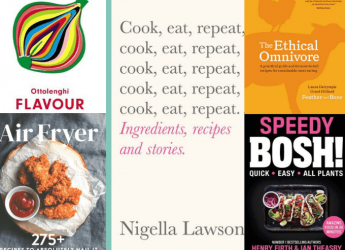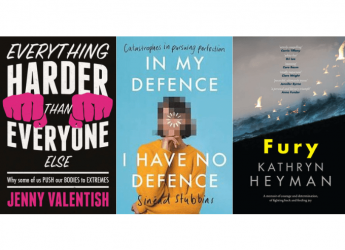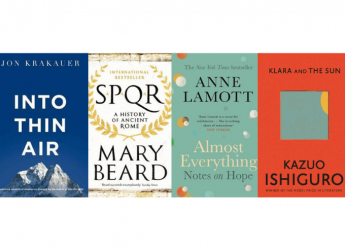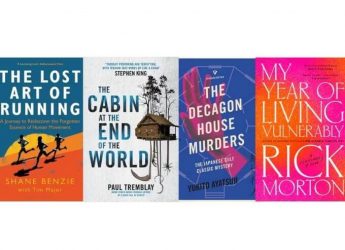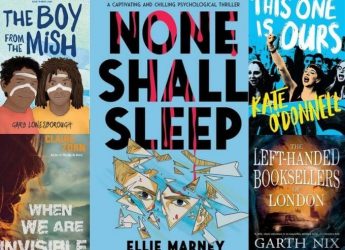
I didn’t need any more convincing to pick up Killing Commendatore by Haruki Murakami after hearing that this novel is his homage to his life-long love of F. Scott Fitzgerald’s The Great Gatsby. Look at this charming video of Bernard Caleo’s performance at the launch of Killing Commendatore at Readings bookstore.
Without exaggeration, one of the most highly anticipated releases of recent years is Bridge of Clay by Markus Zusak, his first book since the worldwide publishing sensation of The Book Thief. Many years ago I was at a Reading Matters conference where Zusak did a reading from an early draft of the manuscript, and the cover image took me back to those brief minutes where he introduced the audience to the Dunbar boys and a story of family hardship, tragedy and love.
Out in the US for about a year, and here in AUS since the beginning of 2018, this next suggestion isn’t a new release, more of a ‘new to me’ title: Mrs Osmond by John Banville. I don’t know how it passed me by as it falls into an area of interest of mine – reinterpretations/extensions/sequels of classic texts (I mean, see Murakami above). I think it’s because, as Charles Finch so aptly put in his review in the New Yorker, “One mark of a masterpiece is that it doesn’t stay where you left it last.” The temptation to continue, to finish, even to emulate or imitate the style of the original author, is one I think many writers will appreciate. In this novel Banville imagines what happens next in the life of Isobel Archer, the heroine of Henry James’s The Portrait of a Lady and a character many still revere for her strength and complexity. But to read Mrs Osmond I will first have to revisit The Portrait of a Lady, something I would prefer to read than ‘cheat’ and watch the movie adaption of – Nicole Kidman version anyway. I didn’t enjoy it.
It’s no coincidence that in the 200th year since the publication of Frankenstein we have seen a lot of interest in the part women have played in the history of speculative fiction history and if you’re looking for an introduction The Future is Female! 25 Classic Science Fiction Stories By Women From Pulp Pioneers to Ursula K. Le Guin, edited by Lisa Yaszek would be a good place to start. There is a bit of a leap – 24 stories are from pulp magazines and the last is by Le Guin, so if you’re left wanting to fill in sci-fi canon gaps, there are ample other similar anthologies out there. A good one is Sisters of the Revolution, which I’ve blogged about before.
And last we come to Less by Andrew Sean Greer, a book I walked past in the bookstore until my eye caught that yellow circle in the top right corner which says ‘2018 Pulitzer Prize for fiction’. That was enough to stop and for me to pick it up to learn more. Arthur Less is almost fifty-years-old, making him “an author too old to be fresh and too young to be rediscovered”. The novel has many insights into the publishing industry that many authors will find unsettlingly familiar and everyone can enjoy thanks to the way Greer writes.





